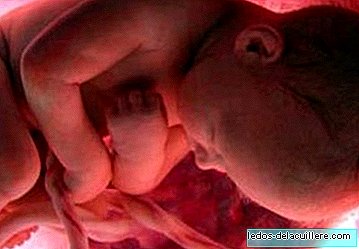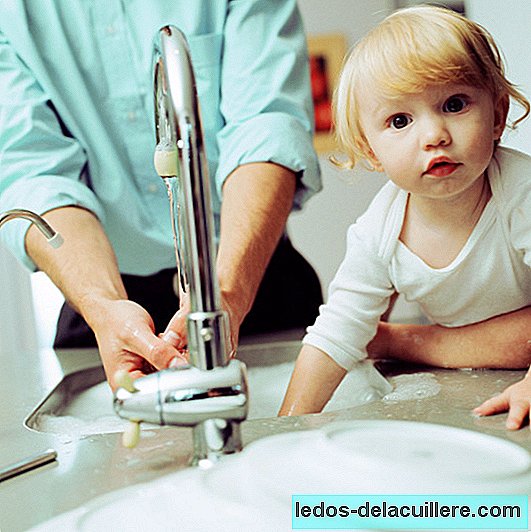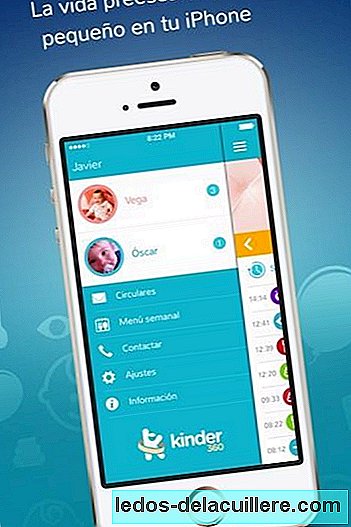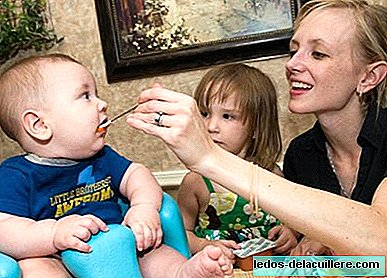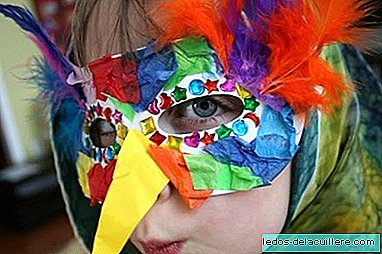
A few years ago there was not much problem when it came to feeding babies because there was a rule that, more or less, served all children: to feed them every three hours.
This rule is no longer useful. It is not still valid. Has no sense. They were given every three hours because most drank artificial milk and it coincides that the digestion of a bottle of formula milk tends to last that time and did not ask before. Breast milk, on the other hand, is digested in an hour and a half (90 minutes) and it is normal for a breastfed baby to do more shots than bottle children.
As the time in breast milk children should not be taken into account, because when breastfeeding is not always filled (with the bottle the parents control the time and the amount they take, but with the breast not), it is said that you have to Feed them on demand, when they ask. The problem is that, if we don't look at the clock and have to wait until it's hungry, How can we know when they are hungry? Because when they cry we are being late.
If you cry, you're late
With the crying babies tell us that they are suffering, that there is something that is not going well at all. Imagine those moments when you have a ravenous hunger and you don't get food anywhere, nor do you know when you can eat. I say it because that is what they feel.
When we are a little hungry, we don't complain too much. We know that there is little to eat or we take anything to "kill the bug" and endure until the time of the meal. They, however, begin to complain when they are a little hungry and, if we don't feed them, they complain more and more, until there comes a time when they cry and cry in despair, because they don't know if they can eat and hunger bothers them a lot.
That "start complaining," which amounts to when we order food at the restaurant, is when open your mouth, make some sound or move your head Like looking for food. If the time passes and the food does not arrive, it begins to move more, to make more sounds with the mouth in the form of groans (like when it is going to cry, but still does not start) and to put your hand to your mouth. It would be equivalent to the moment in which, sitting at the restaurant table, you keep looking at the waiter in case the dish he carries is yours.
If she is not breastfed at that time, the baby begins to cry, shake and turn red from despair. It is the point at which you complain to the waiter about the service because a good time has passed and they have not brought any food. That is, when it is too late.
Late, and that's when many mothers go
It is already late and it turns out that there are many mothers who do not breastfeed their children until they cry. Late, because the baby is nervous, he puts his hands between his mouth and his chest, as if trying to take it to take it to his mouth, but without getting it because he is not skilled enough, to the point that his hands, instead of helping, annoy
Late because he is so angry that he cries so much it is hard for him to fuck his chest well. Late because when it finally turns out that with crying she has swallowed I don't know how much air and she is restless the whole shot until she can finally burp. Late because he is so hungry that he catches himself right away, he doesn't open his mouth enough, he grabs the nipple, instead of the areola, it hurts and causes cracks.
Let's see it in a more graphic way
A document from the Queensland government in Australia runs online, showing what signs of hunger we should take into account in babies. They are the ones that we have already commented, but seeing it in the following image you will see it more clearly:

As you can see, when the baby reaches the third point, try to remedy before feeding. That is to say, you have to calm down to avoid all the possible problems that I have commented. To do this you have to take him in his arms, talk to him, rock him, make skin with skin and, when we notice that he is a little calmer, feed him.
That's why you don't have to look at the clock. That's why you don't have to control three hours, not an hour and a half, not two hours, or anything. The baby asks for food when he is hungry, and when he asks, he has to receive it. It has no more mystery. It is called food on demand and, interestingly, it works better than when it is we, the parents, who try to control the shots.
What if he doesn't breastfeed, but a bottle?
It may happen that a baby takes a bottle, not a breast, and then it seems to make more sense to feed him every three hours. Without a doubt, it has more logic than doing it if you breastfeed, but it is still a mistake. On more than one occasion I have met with parents who explain to me that the baby begins to ask for food within two hours of having taken the previous bottle and that they have it waiting between half an hour and an hour until they touch the next.
They rock it, they give him the pacifier, they try to deceive him with other things and they do what they can to arrive at three o'clock. A absurd and unnecessary suffering for the baby and parents, that they remain tremendously relieved when I say no, not to do so, that the bottle is also given on demand. Too? Of course, we hadn't agreed that the baby should be given when he's hungry and not when we think he's hungry?



